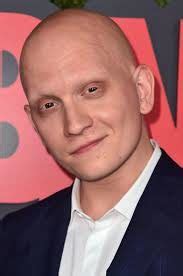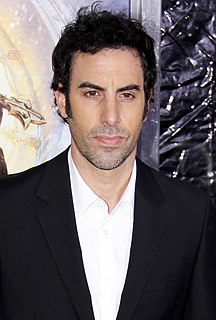A Quote by Rasika Dugal
A well-written character is one where you don't know in which direction it's going; the character could spring a surprise any moment.
Related Quotes
The script that I fell in love with and adored was 'Jane the Virgin'... but every line in the pilot was essentially, 'Why did you keep my daughter a secret all of these years?' I didn't know any direction my character was going - was it going to be a dramatic character, a comedic character? - I didn't know.
You never know what you do that could be totally out of left field, which actually might work and give something fresh to the whole scene, to the character, whatever. If you have that with a director who then knows how to shape it, either in the direction, in the moment, or in the editing, then that's good.
It's - you know, acting's all about relatability and finding empathy for a character, which is essentially, kind of, you're finding empathy with a part of yourself, which is a part of a character that was written by someone else, which was essentially kind of a part of them as well because it was a voice in their head they wrote down.
As an actor, you don't want to know the beginning and end to your character's arc. It makes it more fun. You're not playing the end. You're playing it realistically. You don't know where this character is going to go and what's going to happen to him, which just makes it more interesting for the viewers to watch. They're going on the journey with you, as the actor and the character.
No matter what character your play. I feel like whenever anyone is honest and whole and well-written, you're going to be able to connect to that person because we're all kinda made up of the same stuff and I think that's always one of the really powerful things about approaching each individual character and role and film.
In short, Beauty is everywhere. It is not that she is lacking to our eye, but our eyes which fail to perceive her. Beauty is character and expression. Well, there is nothing in nature which has more character than the human body. In its strength and its grace it evokes the most varied images. One moment it resembles a flower: the bending torso is the stalk; the breasts, the head, and the splendor of the hair answer to the blossoming of the corolla. The next moment it recalls the pliant creeper, or the proud and upright sapling.




































